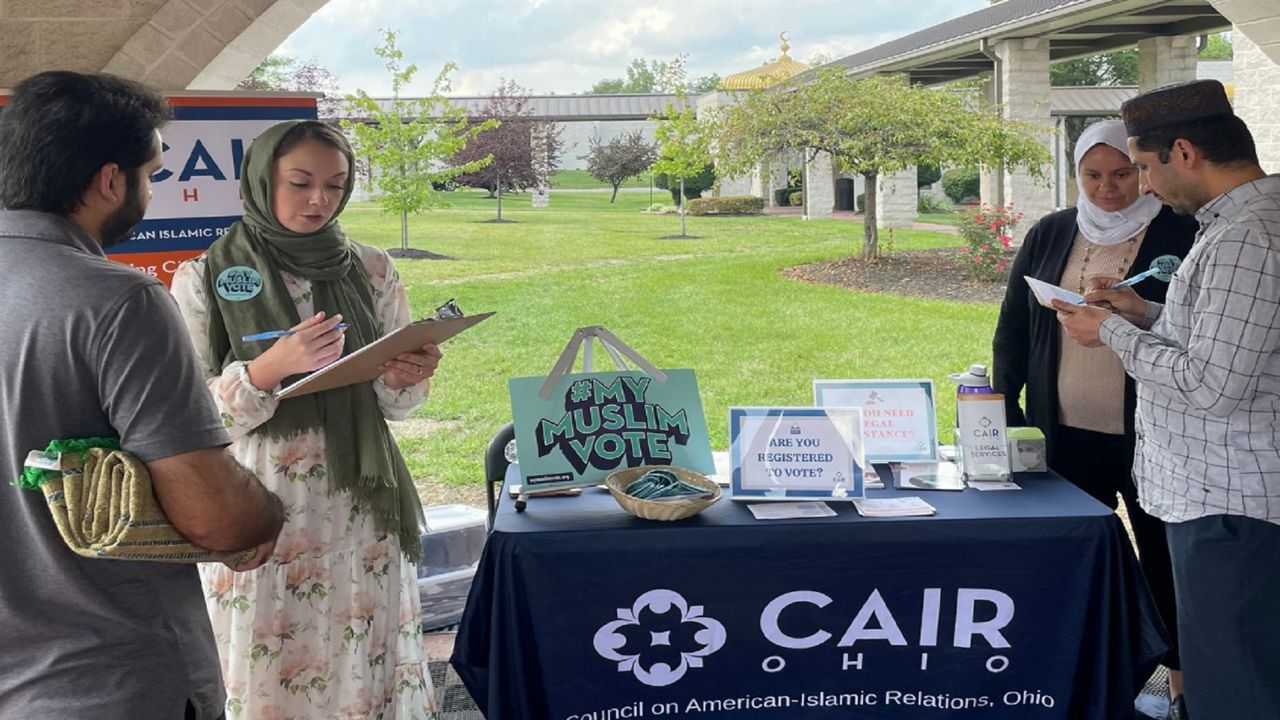CINCINNATI — Shakila T. Ahmad remembers it like it was yesterday.
It was a Tuesday morning about 9 a.m. when Ahmad's husband, Masood, called her into the family's then-home in Sycamore Township, Ohio. She had been outside gardening — “just pruning flowers and enjoying a beautiful, sunny day."
What You Need To Know
- Twenty years after the 9/11 attacks, Muslim Americans are still grappling with the complexities of the situation
- Many Muslim Americans felt as though they were being accused of crimes they didn't commit just for practicing their faith
- To this day, the Council on American-Islamic Relations (CAIR) fields thousands of calls every year related to possible Islamophobic acts against Muslim Americans
- Islam continues to grow locally and across the country, presenting new opportunities for young people to embrace their identity as both an American and a Muslim
Her husband should have been getting ready to leave for work, but something on the television had grabbed his attention. He called Ahmad inside to watch.
“He said, ’Shakila, you need to come into the family room. I don’t know what’s going on but something terrible has happened,'" she recalled.
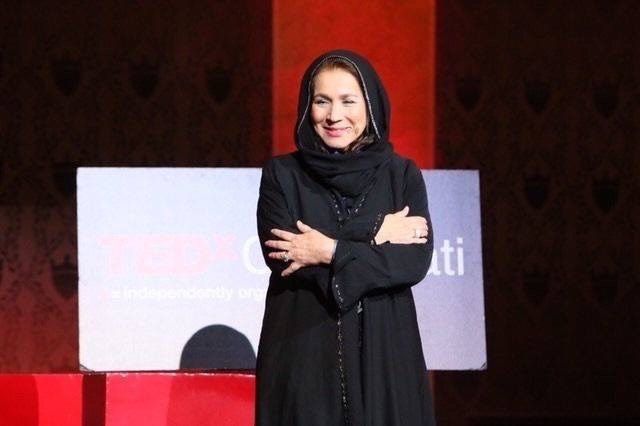
Now, 20 years later, she knows that they were watching as a second airplane struck the World Trade Center towers on Sept. 11, 2001.
In total, nearly 3,000 people died and hundreds were injured in four separate incidents involving hijacked planes that day. It was the most significant terrorist attack on United States soil since Pearl Harbor.
"It was disturbing, frightening, upsetting, you know? This was an attack on our country. And then subsequently over the next two, three days it got even worse as we learned more of what had happened, the lives lost, the ramifications, the implications," she said.
Ahmad said her husband had to go into the office to run their family-owned business. She remembers finding great emotional compassion and sympathy from the service crew that happened to be at her house that morning doing some work.
But in the weeks and months that followed, things changed — for Ahmad, the country and Muslims around the world.
Immediately following the terrorist attacks, Ahmad recalled a colleague asking if she needed any help or support.
"I remember thinking, 'Wait, why do I need support or anything? I don't know anyone who died. Why am I being singled out?'" she asked. "I know they meant well, but it was really kind of jarring and upsetting and hurtful, all at the same time.
"I was young when my family moved to this country and I had three children who were born here and growing up as Americans. It really kind of shook me to the core to know that even though I think of myself as an American, first and foremost, that's not necessarily how other people viewed me."
Those first few days of support and concern gave way, to fear and distrust. The global "war on terror" resulted in two physical wars and an attack on Islam and practitioners of the faith, Ahmad said.
Increased security checks at the airport, to heightened government surveillance at mosques, to now-distrusting looks from longtime friends and colleagues.
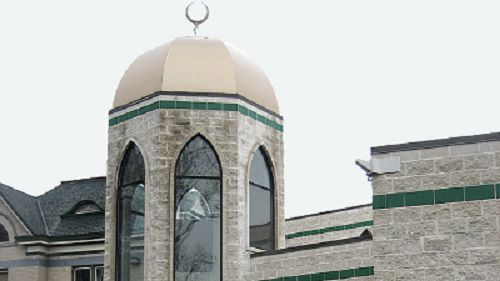
"It made me uncomfortable to know that people were now maybe looking suspiciously at me, or my community, or the place that I worship," she said.
There are about 200,000 Muslims in Ohio. Only about 35,000 of them are in greater Cincinnati, with most living near the University of Cincinnati, or in northern areas like Mason and West Chester, where there are large Islamic centers.
The number has grown considerably in recent years, but Muslims still only make up a small fraction of the region's overall population.
Ahmad moved to Cincinnati from Pakistan when she was a child. Her father was a professor at UC, which is not far from Clifton Mosque. It's also home to the Islamic Association of Cincinnati.
She attended prayer services at the mosque growing up and sent her daughter there years ago for religious studies, which Muslims call Sunday School.
In 2005, two pipe bombs exploded outside Clifton Mosque. To date, there have been no charges filed in this matter.
"While no one was hurt, the bombs were such that they could have seriously injured, or killed anyone in close proximity to them," said Keith L. Bennett with the FBI. He noted that the act was an "attack on one of America’s most cherished freedoms: Freedom of Religion."
"As a society, we cannot tolerate those who would use violence to intimidate others in the practice of religious faith. We should all reject such acts and do all that we can to prevent their recurrence and bring to justice those who would commit them," he wrote back in 2009.
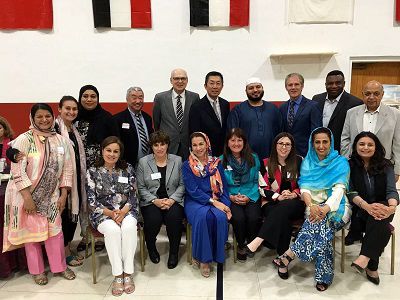
Ahmad never questioned her faith and was never "in the closet" about her beliefs, but for a time it made going to mosque difficult.
"It was a time when people need to go to places of worship, needed that community support the most, and Muslim Americans were afraid to go to mosque because of fears of how it would be perceived because of threats being made," she said.
Ahmad recalled a time a few years after 9/11 when her son, Azeem, was bullied. A student at his elementary school in Mason pushed him and called him "Osama," an allusion to Osama Bin Laden, the leader of the al-Qaida militant organization that perpetrated the Sept. 11 attacks, Ahmad said.
She praised Mason City Schools for how they handled the situation.
"They say being a parent is by far the hardest job you'll ever have, but nothing can compare to having a conversation with your young child about why someone may hate you just because of who you are," she said.
Ahmad started the organization called Muslim Mothers Against Violence in response to terrorist attacks in London in 2005. The group promoted peace, tolerance and nonviolence through communication and dialogue.
She said it's meant to showcase that "Islam values the sanctity of human life and considers attacks on innocent lives as inexcusable and contradictory to the teachings of Islam."
As her children grew up, Ahmad became especially nervous about how the world would view her children, given certain stereotypes about oppressed Muslim women and Islam turning men radical and violent.
Her daughter's friends wore a headscarf, or a hijab, and her eldest son grew a "big, bushy beard." She and her husband would advise their son, Naveed, to shave it when he traveled.
Naveed asked his parents a simple question: "'Mom, dad, it's just in fashion these days, and it's a tradition from the time that the Prophet Muhammad, so why would you tell me to shave it?'"
Ahmad didn't have a response.
"It's really sad that we still have to say things like that to our children," she said. "The whole thing just infuriates me. We need to keep talking to one another having these conversations."
Whitney Siddiqi has a unique perspective on 9/11. She grew up a Baptist in a small city in Kentucky. She made the decision to convert to Islam only a few years ago.
She's now community affairs director for the Ohio chapter of the Council on American-Islamic Relations (CAIR).
"I think 9/11 was a turning point for our entire country," she said. "We’re still grappling with the horrors of that day, and everything that followed."
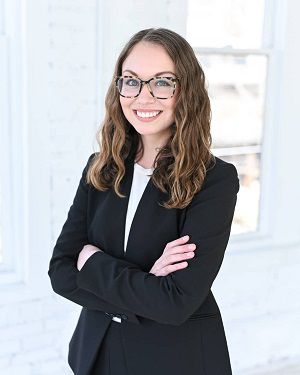
Siddiqi was in third grade in Owensboro, Ky. when the terrorist attacks occurred. Like so many others, she can recall where she was when she learned of the terrorist attacks: “I was in science class and I just remember the next-door teacher running into the classroom and telling them to turn on the TV and seeing smoke come out of the towers."
At the time she was living about 100 miles east of Louisville. She loves her friends and family, but is the first to admit the community of about 60,000 people wasn't the most diverse.
It was at college at the University of Kentucky, between 2011-2014, where she met and became friends with "people of all backgrounds, including Muslim Americans," she said. A college religion course introduced to the tenets of Islam.
"Several years later, coincidentally around the time of Donald Trump's first campaign and a rise in Islamophobia across the nation, I began a deeper dive into the religion," Siddiqi said.
"Something clicked," she added, calling Islam a "pathway on which she could live out her faith in God and live up to the type of person she aspired to be."
Siddiqi fell in love with the tradition of social justice and being accountable to each other and our communities as a duty and obligation was especially impactful.
At the same time, she said she was terrified of being ostracized for practicing her beliefs, scared of reactions from family, friends and co-workers based on Islamophobic stereotypes.
After three-plus years of studying and reading the Quran, Siddiqi officially converted to Islam in February 2019. Her husband, Ismaeel, is a practicing Muslim as well. They now live in Cincinnati.
Siddiqi said talking and thinking about the terrorist attacks is complex for many Muslim Americans.
"Sept. 11 is a difficult day to commemorate for every American, but Muslim Americans have unique compounded trauma from 9/11 because not only did something terrible happen in our country, to our fellow citizens, making us all feel less safe – but on top of that, Muslims were immediately vilified as violent, backward and extreme – and held responsible for the terrorist attacks," she said.
In the days, weeks and months after, hate crimes against Muslims in America skyrocketed. Even years later, that prejudice continues, Siddiqi said.
In 2014, DHL Global Mail reached a settlement agreement with 23 Somali Muslims who claimed they were fired from the company's Hebron, Ky., facility for taking breaks for evening prayers required in their religion.
The employees said they had previously been permitted to pray because of a flexible-break policy enforced by previous supervisors, but the company changed the policy, according to a report from the Cincinnati Enquirer.
Between 2016 and 2020, approximately 60% of American Muslims reported experiencing religious discrimination, according to the Institute for Social Policy and Understanding.
In 2020 alone, more than 220 Muslims living in Ohio contacted the CAIR-Ohio office seeking help with issues ranging from employment discrimination to watch list and immigration issues, Siddiqi said.
"We are hopeful that we can right these wrongs when people and coalitions from all backgrounds join us to fight discrimination," she added. "But there is still so much work to be done before we all feel safe, before being Muslim carries a positive connotation, and Islam has an equal place among many faiths in America’s pluralistic society."
Abdulsalam Bah was only 4 years old when the Sept. 11 attacks took place. Even from that early age, he knew that the attacks had nothing to do with the religion that he loves.
"I knew that the 9/11 terrorists were not Muslims in any way, shape or form," he said. "They used Islam as a platform for their own agenda which had nothing to do with Islam."
Bah said in his personal life he was "very proud to be Muslim and a very devoted Muslim as a kid."
"I really adopted the beautiful values and moral code that Islam held, and it was my anchor to my identity," he added.
He ran into issues when he started school, though.
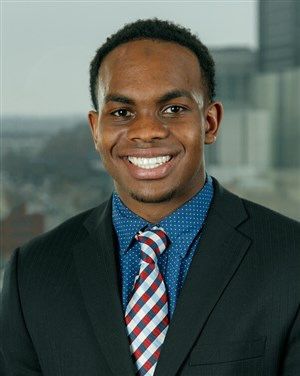
"I never really hid that I was Muslim, but I kind of just tried to blend in as a chameleon, which I now realize is not the narrative for most Muslims, especially hijabed Muslim women," Bah said.
Bah was born in Freetown, Sierra Leone in 1996. His native country was engaged in a decade-long civil war, so his family decided to try to relocate to the United States when he was a 1-year-old. They ended up in the Cincinnati-area as part of a U.S. visa immigration lottery system. Today, that system has morphed into the Green Card through the Diversity Immigrant Visa Program. Bah said his family had a "less than a 1% chance of winning" in the previous lottery system.
Bah went to Lakota East High School in Liberty Township and then, attended The Ohio State University. He is currently a second-year medical student at Icahn School of Medicine at Mount Sinai.
He lives with his wife, Nour El Yaquine Djema, in New York City.
Bah said he's never really experienced any in-person criticism or hate for being Muslim. He said that's likely due in part to how he looks.
Islam is one of the world's most diverse religions, but most stereotypes depict Muslims as being Arab or South Asian — not African.
Bah called growing up Black and Muslim in Ohio an "identity crisis."
"I felt split in my personality because I really loved my religion, but at the same time, I feared the hate that would be directed towards me, considering the fact I was already experiencing racism for being Black," he said. "I always experienced racism as a Black man, and feared that if my Muslim identity showed, that this was another front or fuel for discrimination in my identity."
Bah considered being able to "hide" that part of who he was a "slight privilege" at the time. But it took a toll on his mental health.
"I remember being very ashamed of being Muslim because the narrative among kids and adolescents was that all Muslims were terrorists," he said.
One way he got through that period was by studying and learning more about his faith. After finishing up at OSU, he went to Qalam Institute for one year to study Islam and Arabic in Dallas, Texas.
"I realized... that the best way to love your identity is to learn more about it," he said. "I continued to learn more about my religion and dedicated time understanding the peace, love and moral code that Islam held."
Bah is part of a national trend of younger Muslims who grew up post-9/11. Many have started to lean into their religion as a way to show self-love and also to help debunk misinformation about Islam.
The generation includes a mixture of celebrities, artists, journalists and academics. And, since 2006, national political figures.
Only four Muslim Americans have ever been elected to U.S. Congress, but all have been elected since '06. That includes Keith Ellison, a Black man, who was the first Muslim elected to Congress.
Three Muslims currently serve in Congress, all in the House of Representatives, including U.S. Rep. Ilhan Omar, D-Minn. She's one of two Muslim women -- the other being Rep. Rashida Tlaib, D-Mich. -- in Congress.
Omar was born in Somalia and immigrated as a refugee to the U.S. in 1995, two years ahead of Bah.
Bah said one way that he internalized his growth is instead of going by “Abdul,” which he once did, he started going by his full name of “Abdulsalam.”
"It was a slight change, but something that gave me confidence in owning my identity and owning my love for Islam," he said.



